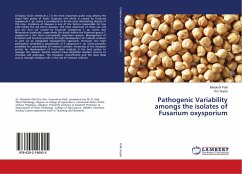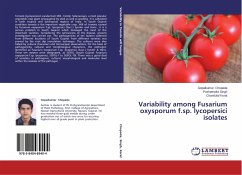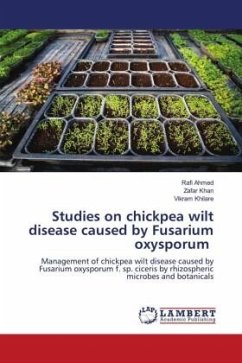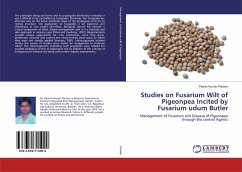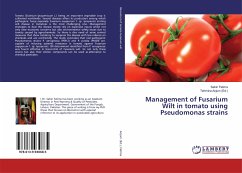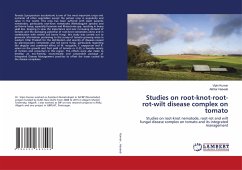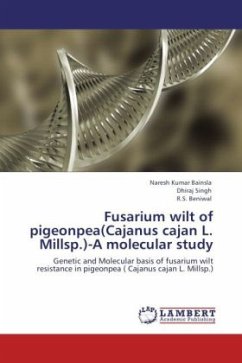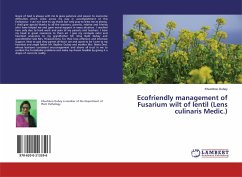Chickpea (Cicer arietinum L.) is the most important pulse crop among the major Rabi pulses of India. Fusarium wilt which is caused by Fusarium oxysporum f. sp. ciceris is considered to be the most devastating disease of this crop. Incidence of diseases is one of the factors responsible for low yield mostly the soil borne diseases. The most important of these are wilt and dry root rot caused by Fusarium oxysporum f. sp. ciceris and Rhizoctonia bataticola, respectively. No doubt within the Fusarium genus F. oxysporum is the most economically important species. Management of Fusarium wilt has been primarily through development of resistant cultivars as part of an integrated management approach. However, the high pathogenic variability in populations of F. oxysporum f. sp. ciceris presents problems for sustainability of resistant cultivars. Screening of the chickpea entries for development of host plant resistant is the best option to manage the disease. Several workers have identified resistant sources to chickpea wilt pathogen. The cheapest, cost-efficient and the most ideal way to manage chickpea wilt, is the use of resistant cultivars.
Bitte wählen Sie Ihr Anliegen aus.
Rechnungen
Retourenschein anfordern
Bestellstatus
Storno

